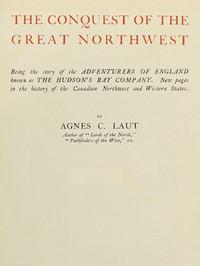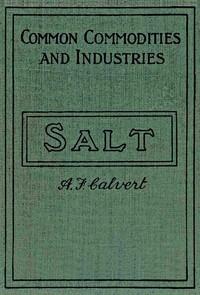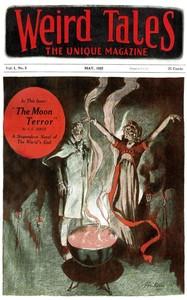|
|
Read this ebook for free! No credit card needed, absolutely nothing to pay.Words: 135042 in 50 pages
This is an ebook sharing website. You can read the uploaded ebooks for free here. No credit cards needed, nothing to pay. If you want to own a digital copy of the ebook, or want to read offline with your favorite ebook-reader, then you can choose to buy and download the ebook.

: The history of the Jews: From the war with Rome to the present time by Adams H C Henry Cadwallader - Jews History 70-@FreeBooksThu 08 Jun, 2023 of the Roman army, with its idolatrous standards, to Jerusalem. On this occasion there was a very general rising of the people; and if Pilatus had remained in power, hostilities with Rome might have broken out a generation previously to their actual occurrence. But after committing, with apparent impunity, several sanguinary massacres of Jews, whom his wanton disregard of their feelings had stirred up to insurrection, Pilatus was accused to Vitellius, the Prefect of Syria, by the Samaritans, of a similar outrage on them. Vitellius ordered him to Rome, to take his trial. There he was deposed, and sentenced to exile. It was a short time before his accession that the event occurred which roused the anger of the Jews to a higher pitch than had ever before been manifested; and had the outrage been pushed further, a civil war would have undoubtedly been the result. This was the attempt of the Emperor Caligula to erect his statue as that of 'The Younger Jupiter,' as he styled himself, in the most sacred part of the Jewish Temple. The design seems to have been the result of a mere whim, conceived by the half-crazy emperor, and pertinaciously persisted in, when he learned that its execution would occasion among the worshippers of the God of the Hebrews unspeakable horror and alarm. There can be no doubt that the impiety was intended. The statue had been ordered, if not completed; but the wise and generous procrastination of Petronius, the earnest representations of Agrippa, who was a favourite of the emperor, together with the death of the emperor himself, which followed almost immediately afterwards, averted the accomplishment of the design. The narrative of the transaction is valuable, because it shows that at that time the Jews were disposed to wise and moderate counsels, which contrast forcibly with their reckless violence a generation later. When the fatal intentions of Caligula were made known, the whole population, we are told, of all ranks and ages, from a vast distance round Jerusalem, crowded round the chair of the Roman procurator, declaring their determination to die rather than witness so fearful a profanation. Their demeanour so deeply affected Petronius, that he thenceforth strove by every means in his power to avert the dreaded catastrophe; and, aided by circumstances and the intercession of Agrippa, he succeeded in his attempt. Caligula, however, could not forgive his disobedience, and it is said that the emperor's death alone saved Petronius from the consequences of his anger. Through the favour of Claudius, who now mounted the Imperial throne , Agrippa succeeded to the whole of the dominions of his grandfather, Herod the Great, and held them for four years, when he died, A.D. 44, in the manner already referred to; and Judaea again became a Roman province, Cuspius Fadus being sent as governor. During his rule, and that of his successor Tiberius Alexander, the peace of Palestine continued undisturbed, except by the outbreaks of one or two of the turbulent incendiaries, of which the land contained great numbers. These were easily put down. But during the procuratorship of Ventidius Cumanus, the animosity between the people and the Roman soldiers, which had long been smouldering, burst out into a flame. During one of the Jewish festivals, a soldier offered a gross insult to the ceremonial in progress, which roused the fury of the Jews against, not only the offender, but Cumanus himself. The latter, hearing the furious cries with which he was assailed, marched his whole force into the Antonia, and commenced an indiscriminate massacre, in which 20,000 perished. For this outrage and his subsequent conduct in a hostile encounter between the Jews and Samaritans, Cumanus was tried at Rome, and condemned to banishment. He was succeeded by the profligate Felix, whose government was worse than that of any of his predecessors. It was, in fact, one long scene of cruelty and treachery. He allied himself with some of the bands of robbers now infesting Judaea, and by their aid murdered, in the very precincts of the Temple, Jonathan, the high priest, who had rebuked his vices. After eleven years of misrule, he was accused by the Jews in Caesarea of the barbarous slaughter of some of their countrymen. He was tried at Rome, but escaped through the interest of his brother, Pallas. He was, however, a vigorous ruler, and put down the notorious Egyptian Jew, who, with 30,000 followers, had raised a formidable insurrection . After his prefecture, and that of his more humane and upright successor Porcius Festus, the inveterate evils which afflicted the whole of Judaea continued to grow in violence and intensity. Banditti overspread the country, and carried on their lawless depredations almost with impunity. Impostors and fanatics started up on every side, and drew after them great multitudes, to whom they preached rebellion against their Roman governors as a religious duty. Riot and bloodshed, and armed encounters with the Roman soldiery, became matters of continual occurrence, which the authority of the procurator was unable to restrain. The evil was aggravated by the succession of the corrupt Albinus to the office vacated by the death of Festus; but it was not until he, in his turn, was superseded by the infamous Gessius Florus that the discontent of the unhappy Jews culminated in the rebellious outbreak which brought on their ruin. Shortly afterwards a new adventurer, Menahem, the son of Judas the Gaulonite, appeared, and was gladly welcomed by the people. But he soon provoked the jealousy of Eleazar, the leader of the Zealots, by whom he was deposed and slain. Eleazar having gained complete mastery in the city, proceeded to murder, with shameless treachery, the Roman garrison, which had surrendered on condition of being spared. Almost coincidently with this shocking deed, one of equal horror was perpetrated at Caesarea, where 20,000 Jews were slaughtered by the Greek inhabitants. In this atmosphere of treachery and bloodshed the whole nation appears to have gone mad. They were resolved, apparently, that as every man's hand was against them, so should their hand be against every man. They took up arms, plundered several of the Syrian cities, laying waste the whole country round them. The Syrians retaliated with equal barbarity, everywhere slaying without mercy their Jewish fellow-citizens. Neither Agrippa's dominions nor Egypt escaped the contagion. In the former, a feud between Varus, the deputy, to whom Agrippa had committed the government of his kingdom during his absence at Antioch, and Philip, the general of his army, very nearly caused a civil war. At Antioch another quarrel between the Jews and Greeks, relative to the right of the former to attend public assemblies, led, first to a riot, and then to a general rising of the Hebrew population. The governor, Tiberius Alexander--who was by birth a Jew, and had some years previously been Procurator of Judaea, afterwards holding a command in Titus's army at the siege of Jerusalem--sent for the principal men among the Jews, and exhorted them to use their influence in quieting the disturbance. Failing in this attempt, he ordered out the troops, and made an attack on the Jews' quarter, in which 50,000 persons were slain. Throughout the whole of Palestine, Syria, and Egypt, strife and bloodshed prevailed. The advance of the Roman army was anxiously looked for by all who retained their reason, as the only hope of putting an end to the frantic anarchy wherewith the whole land was now overspread. FOOTNOTES: It is an error, I think, to connect the name Hebrew with Heber, or Eber, the great-grandson of Shem. Abraham was called the Hebrew, or passer over, ? ??????? , because, in obedience to Divine command, he 'passed over' the Euphrates, leaving his home and people, to settle in a strange land. Heber was the progenitor, not of the Hebrews only, but many other nations. The notion that they were called after him, because at the dispersion of Babel he retained and transmitted the primitive language of the world to one only of his descendants, is a mere fancy. He may have been, and very probably was called the 'passer' or 'carrier away,' because he was the patriarch of the dispersion. But Abraham's name was given to him for a different reason, and altogether independently of Heber. In proof of this may be alleged the fact, that in the brief space of sixty years no less than four Roman procurators were summoned before the Imperial Tribunal to answer complaints brought against them by the Jews; and two of them were punished by banishment for life. Judas was born at Gamala, a city of Gaulonitis. He was a brave, able, and eloquent man. Supported by Sadoc, an influential Pharisee, he founded the party of the Gaulonites, who were the predecessors of the Zealots and Assassins of later times. Though multitudes gathered round his standard, he was not supported by the nation generally, and the power of Rome was too great for him to contend with. He was overpowered and put to death. He is referred to in Acts v. 37. It was not in Judaea only that these feelings were aroused. In Alexandria, the proposal made by the Greeks, to place the emperor's statue in the Jewish Proseuchae, provoked riots, in which much property was wrecked, and terrible carnage took place. The Roman governor, Flaccus Aquilius, for many years a wise and able ruler, but who had grown reckless since the accession of Caligula, towards whom he bore no good will, made no attempt to repress, but rather encouraged, the outrages. He was so unwise as to openly insult the emperor's friend, Agrippa. He was arrested by order of Caligula, and put to death with barbarous cruelty. Free books android app tbrJar TBR JAR Read Free books online gutenberg More posts by @FreeBooks
: The conquest of the great Northwest Volume 1 (of 2) by Laut Agnes C - Hudson's Bay Company; Northwest Canadian; Hudson Bay History@FreeBooksThu 08 Jun, 2023

: Salt and the salt industry by Calvert Albert Frederick - Salt industry and trade; Salt industry and trade England Cheshire@FreeBooksThu 08 Jun, 2023

: Weird Tales Volume 1 Number 3 May 1923: The unique magazine by Various Baird Edwin Editor - Adventure stories Periodicals; Fantasy literature American Periodicals; Fantasy literature English Periodicals; Horror tales American Periodicals; Horror tales Engl@FreeBooksThu 08 Jun, 2023
|
Terms of Use Stock Market News! © gutenberg.org.in2025 All Rights reserved.






